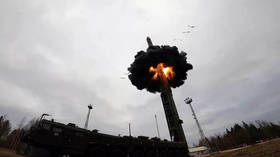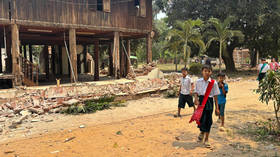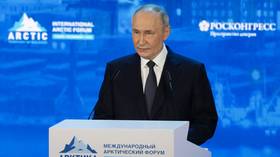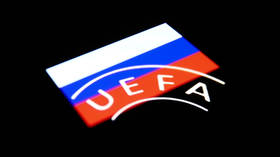Russia promises response to US nuclear deployment in Europe
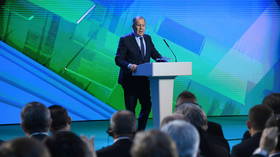
Russia must to react to the threat posed by US nuclear weapons deployed in Europe, Foreign Minister Sergey Lavrov said on Thursday, while accusing the West of openly waging a “real war” against Moscow.
Speaking at a forum dedicated to Eurasian security in Belarusian capital Minsk, Lavrov reiterated Russia’s criticism of NATO’s nuclear sharing scheme. Under the plan, part of the US nuclear arsenal is stationed outside the country, with training provided to allies on how to deploy the weapons.
According to Lavrov, this arrangement creates “increased strategic risks,” as well as generating “an extremely destabilizing charge and forces us to resort to compensatory measures amid the general increase of threats posed by NATO.”
Dozens of US nuclear bombs are reportedly stored in Germany, Italy, Belgium, the Netherlands, and Türkiye. Some non-host nations, such as Poland, have received training in using the weapons, which Moscow considers a form of nuclear proliferation.
Lavrov accused Western nations of waging “an open, hybrid [war], but however you describe it, it’s a real war.” He further described Ukraine as the primary tool in the hands of Washington and its allies.
“Western aggression against Russia is only part of a crusade… against any member of the international community who would demonstrate independence and defend national interests,” Lavrov added.
However, the balance of power is shifting against the West, offering hope for more equal and effective security architecture in Eurasia, Lavrov claimed. He added that Moscow is seeking a return to the idea of an indivisible security space “from Lisbon to Vladivostok,” and is willing to discuss this with all nations across the region.
“But this time it must be an honest talk aimed at achieving practical outcomes, rather than sloganeering masquerading a desire to pursue egoistic policies,” Lavrov insisted.
All states should pledge not to allow their territories to be used to “create threats to anyone,” while any opportunity “for a diktat of force by players outside of the region and the continent” should be eliminated, Lavrov stated.
The Russian diplomat hailed his Hungarian counterpart, Peter Szijjarto, who is also attending the two-day event in the Belarusian capital, as representing a country that knows the value of national sovereignty.
Most other nations to the west of Russia have submitted to Washington’s rule, and Moscow currently sees no point in discussing the vision of continent-wide security with them, Lavrov stated. That will change “if they find the strength to become independent [and] acquire ‘strategic autonomy,’” as described by French President Emmanuel Macron and other European leaders, the Russian foreign minister added.
